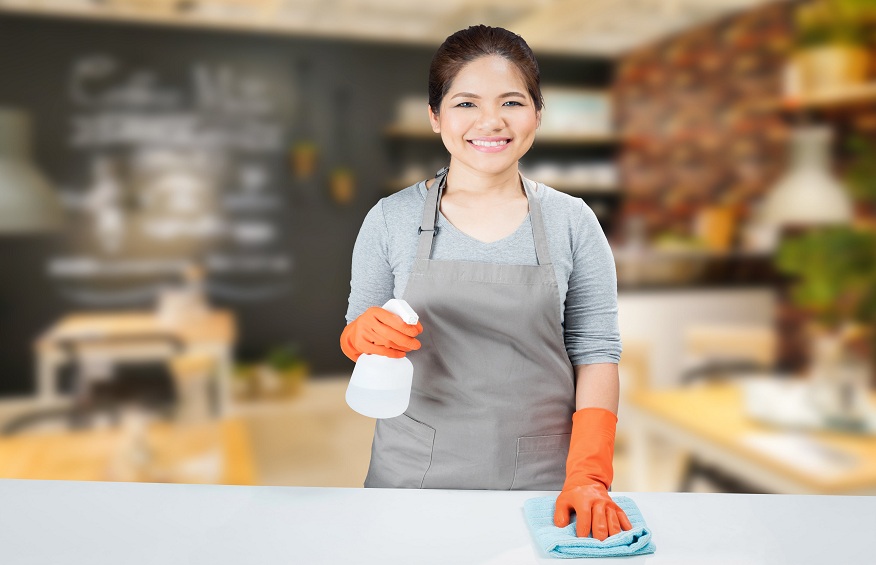From Domestic Helpers to Empowered Women: The Evolution of Maids in the UAE

The role of maids in the United Arab Emirates (UAE) is an important and often overlooked topic. Maids play a crucial role in Emirati households, providing essential services such as cleaning, cooking, and childcare. However, their contributions are often undervalued and their rights and protections are not always upheld. It is important to discuss the role of maids in the UAE to raise awareness about their contributions, address the challenges they face, and work towards greater empowerment and recognition for these individuals.
The Historical Role of Maids in the UAE
Traditionally, maids in the UAE have played a vital role in Emirati households. They have been responsible for maintaining the cleanliness and orderliness of the home, as well as taking care of children and preparing meals. In many cases, maids have become an integral part of the family, providing support and assistance to the household members.
Over time, the role of part maids in UAE has evolved. With the rapid development and modernization of the country, there has been an increased demand for domestic helpers. This has led to an influx of foreign workers, particularly from countries such as the Philippines, India, Sri Lanka, and Indonesia. These workers have brought with them their cultural practices and traditions, which have influenced the role of maids in Emirati households.
The Changing Attitudes Towards Domestic Helpers
In recent years, there has been a shift in attitudes towards domestic helpers in the UAE. Previously seen as mere employees, there is now a growing recognition of their contributions and a greater emphasis on treating them with respect and dignity. This change can be attributed to several factors.
One factor is increased awareness and education about the rights and protections of domestic helpers. Organizations and advocacy groups have worked tirelessly to raise awareness about the importance of treating domestic helpers fairly and ensuring their well-being. This has led to a greater understanding and acceptance of the rights and needs of domestic helpers.
Another factor is the influence of globalization. As the UAE has become more connected to the global community, there has been an increased exposure to different cultures and perspectives. This has led to a greater appreciation for diversity and a recognition of the value that domestic helpers bring to Emirati households.
The Impact of Globalization on the Maid Industry in the UAE
Globalization has had a significant impact on the maid industry in the UAE. On one hand, it has led to an increase in demand for domestic helpers, as more Emirati households require assistance with household chores and childcare. This has created job opportunities for individuals from countries with high unemployment rates.
The Emergence of Maid Agencies and Recruitment Practices
The emergence of maid agencies in the UAE has had both positive and negative impacts on maids. On one hand, these agencies provide a valuable service by connecting households with domestic helpers who meet their specific needs. They also provide support services such as training, orientation, and assistance with paperwork.
However, there have been cases of unethical practices by some maid agencies. These include charging excessive fees, providing false information about working conditions, and failing to provide adequate support to domestic helpers. These practices not only exploit domestic helpers but also tarnish the reputation of the maid industry as a whole.
The Legal Rights and Protections for Maids in the UAE
The UAE has implemented several legal rights and protections for maids to ensure their well-being and prevent exploitation. These include laws on minimum wage, working hours, rest days, annual leave, and access to healthcare. Additionally, the UAE government has established mechanisms for reporting abuse and seeking redress.
However, there are challenges in enforcing these rights and protections. Some employers may not be aware of their obligations or may intentionally disregard them. Domestic helpers may also face barriers to accessing justice, such as language barriers or fear of retaliation. The UAE government needs to strengthen enforcement mechanisms and provide support services for domestic helpers who are victims of abuse.
The Role of Education and Training in Empowering Maids
Education and training play a crucial role in empowering maids in the UAE. By providing them with the necessary skills and knowledge, they can improve their job prospects, increase their earning potential, and enhance their overall well-being.
There are several programs and initiatives available for maids in the UAE. These include vocational training programs that provide maids with skills such as cooking, cleaning, childcare, and first aid. There are also language classes available to help maids improve their communication skills.
The Rise of Female Entrepreneurs in the Maid Industry
There has been a rise in female entrepreneurs in the maid industry in the UAE. These women have recognized the potential of the industry and have started their own maid agencies or cleaning services. This has not only provided job opportunities for domestic helpers but has also empowered women to become business owners and leaders.
Female entrepreneurship in the maid industry has also led to a greater emphasis on ethical practices and fair treatment of domestic helpers. Many female entrepreneurs prioritize the well-being and rights of domestic helpers and actively work towards creating a positive and supportive work environment.
The Challenges and Opportunities for Maids in the UAE
Maids in the UAE face several challenges, including long working hours, low wages, lack of job security, and limited access to healthcare and social services. They may also face discrimination and stigma due to their occupation.
However, there are also opportunities for maids in the UAE. With the right support and resources, they can improve their skills, increase their earning potential, and enhance their overall well-being. There are several initiatives and programs available to address these challenges, such as vocational training programs, support services for victims of abuse, and awareness campaigns to promote fair treatment of domestic helpers.
The Importance of Cultural Sensitivity and Respect for Maids
Cultural sensitivity and respect are crucial when it comes to maids in the UAE. Domestic helpers come from diverse cultural backgrounds and it is important to recognize and appreciate their cultural practices and traditions.
It is also important to treat maids with respect and dignity, recognizing their contributions and valuing their work. This can be done by providing fair wages, reasonable working hours, rest days, and access to healthcare. It is also important to create a positive work environment that promotes open communication, mutual respect, and equal treatment.
The Future of Maids in the UAE: Towards Greater Empowerment and Recognition
The future of maids in the UAE looks promising, with initiatives and programs in place to empower and recognize their contributions. There is a growing awareness and recognition of the importance of treating domestic helpers fairly and ensuring their well-being.
Moving forward, the UAE government, employers, and society as a whole need to continue working towards greater empowerment and recognition for maids. This can be done through stricter regulations, increased enforcement of labor laws, support services for victims of abuse, and awareness campaigns to promote fair treatment of domestic helpers.
Conclusion
In conclusion, the role of maids in the UAE is an important and often overlooked topic. Maids play a crucial role in Emirati households, providing essential services such as cleaning, cooking, and childcare. However, their contributions are often undervalued and their rights and protections are not always upheld.
It is important to discuss the role of maids in the UAE to raise awareness about their contributions, address the challenges they face, and work towards greater empowerment and recognition for these individuals. By providing them with the necessary support and resources, maids can improve their skills, increase their earning potential, and enhance their overall well-being. The UAE government, employers, and society as a whole must prioritize the well-being and rights of maids to create a fair and inclusive society.







